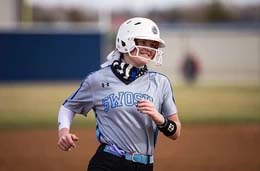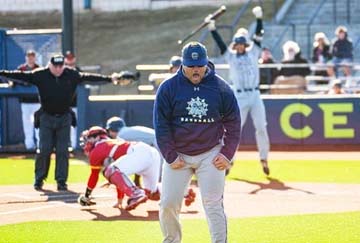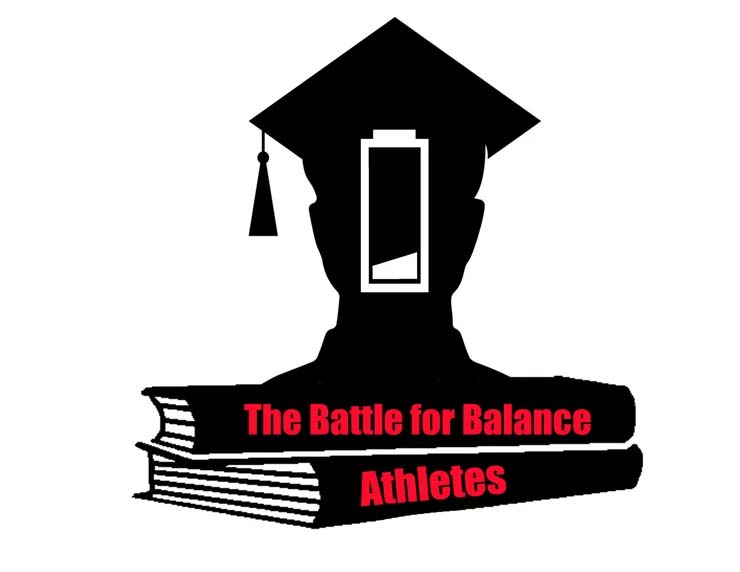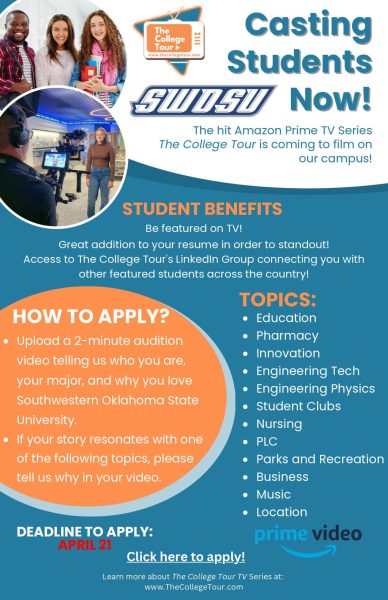Finding a balance: Athletics and school
For some students, the added pressure of outside activities, such as athletics, can spiral, leading to dropping the various activities, or even out of school. For Hannah Franklin, a senior on the Southwestern Oklahoma State softball team working on her master’s degree in education sports management, this is not the case.

“It has gotten easier because I have learned how to manage my time between athletics and school,” Franklin said.
Student athletes face pressure inside the classroom as well as the added pressure brought on by their respective sports. It is possible to juggle such a daunting task, but it is not without discipline and organization.
SWOSU’s Head Baseball Coach Zack Saunders thinks the task of working with athletes and their schooling is tough at times.
“It’s a lot of good mixed in with a lot of frustration,” Saunders said.
He explained that depending on the size of the institution, it can be very difficult to schedule team practices that all team members can attend.

“Since we are at a smaller regional university, it is difficult to have everyone at practice at the same time; we fight with lab times and not having lights on our field to move practice to later,” he said.
These troubles have affected athletes, as they must make it to classes, while also making time to practice.
Nate Hicks, a business instructor at SWOSU and former student athlete himself, explained that it is tough for student athletes trying to juggle both school and sports.
“You need to show up to pass classes; that is hard to do when you miss classes for events,” Hicks said.
What’s the biggest thing for juggling softball and school for Hannah Franklin— time management.
“Make sure you make time for both athletics and getting your schoolwork done on time.”
Saunders had the same thoughts: “Time management is probably the single biggest issue.”
It was a common theme for many when asked about the struggle of making sure as an athlete that one stays on top of schoolwork and sports.

Wendy Yoder, director of the Academic Support Center at SWOSU since 2013, helps with retention, advising and building schedules. She is visited by student athletes a few times a week that are struggling and that are generally referred by coaches.
Yoder reiterated the need for time management skills displayed by student athletes. “Time management,” she said. “That’s huge.”
Another challenge Yoder brought up regarding student athletes was to have mindfulness, by both the athlete and those advisers who help them out.
“Not all advisers are mindful of eligibility requirements,” Yoder said. “But it is important to not make athletes so overwhelmed.
“There are also misconceptions that athletes can’t do rigorous classwork,” Yoder added.
She made sure to note that athletes have the ability to do sometimes daunting classwork but must showcase their organizational and time management skills.
Being proactive regarding scheduling is another one of these skills. As Hicks explained for his student athletes, one of the biggest keys is scheduling the more-demanding classes in non-competitive seasons if possible.
“[The] biggest thing is to have a game plan,” Hicks said, “and communication is key.”
Hannah Franklin explained that study hall is required by the SWOSU softball program for all freshman and transfer students, as well as those who are struggling in their classes to help those players that might be struggling in one subject or another.
“That helps the freshmen get their time management down and helps the girls who are struggling with classes schedule time to get their homework done,” she said.
The addition of online classes has both relieved as well as created more stress for athletes.
Saunders explained that it has gotten much easier for student athletes to juggle both sports and school over time, but different issues have arisen.
“The amount of resources and classes online has opened up an entire new avenue that wasn’t around 10 years ago,” Saunders said. “But in the same breath there are way more distractions than ever.”
Yoder explained that the addition of online courses has become more accommodating but causes issues with communication between instructors and those student athletes.
“It is important for athletes to communicate with instructors,” Yoder said. “To build those relationships.”

“Today there is more support. They are students first and it takes a network of support,” Hicks said. “There is more of that now than when I was an athlete.”
The importance of school cannot be stressed enough for those overseeing student athletes around campus.
“I think making sure that school is the number one priority while also having the sport you coach being a close second,” Saunders said of his student athletes’ priorities.
“Make sure to make time for both athletics and getting schoolwork done on time,” Franklin said.

Katy Malinowski is the News Editor for The Southwestern. While earning her degree in Strategic Communications with a minor in Public Relations, she hopes...











